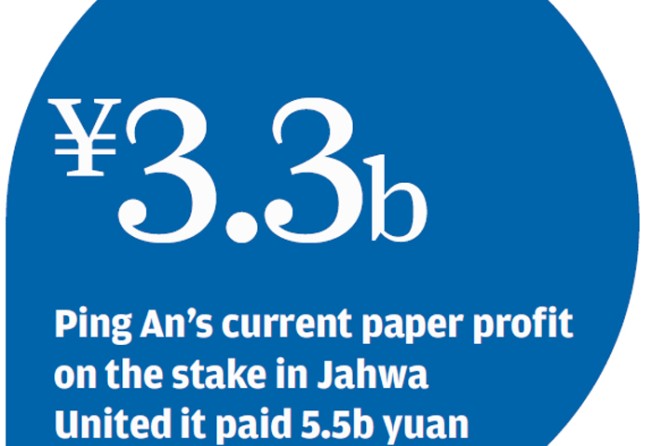
Cosmetics firm fights its biggest stakeholder
Chief executive and insurance firm swap accusations in battle for control of company

A conflict that pitted management at the cosmetics firm Shanghai Jahwa United against its major shareholder, Ping An Insurance, has caused concern among mainland equity investors as top executives slug it out.

The fight between the management and the owner alarmed the mainland's stock market, as investors cast doubt on the corporate governance of the two companies.
Ping An, through its trust unit, paid 5.1 billion yuan (HK$6.38 billion) in late 2011 to buy out the state-owned Shanghai Jahwa Group, which held 28 per cent of the cosmetics firm.
It was believed that the transaction would hugely benefit Jahwa, one of the country's leading cosmetics and household products maker.
The government stake had meant that it had been forced to operate under directives from local officials.
Analysts had predicted that Ping An, with its financial strength, would be a great support to Jahwa's expansion at home and abroad.
Jahwa's A shares, which have risen considerably since the deal, have given Ping An a whopping 3.3 billion yuan gain.
However, Ge said on the microblogging site Sina Weibo that Ping An was not helping Jahwa improve its businesses and was trying to sell its assets for short-term gains. "Ping An shouldn't be allowed to do whatever it wants," he said.
Last weekend, Ge was fired as chairman of Jahwa Group, as Ping An charged him and other senior managers with pocketing illicit gains while infringing upon the company's interests.
He remains chairman and chief executive of the listed subsidiary, however, and Ge's removal from the posts at Jahwa United is subject to an approval on a pending shareholders' meeting. Ge has denied any wrongdoing.
A source close to Jahwa's management said: "He used to be the boss at Jahwa and couldn't accept that his decisions could be overruled by Ping An. The power tussle shows how difficult it is for new owners to overhaul businesses previously owned by the state."
It remains to be seen whether Ge and other managers committed wrongdoings, the source said, adding that the charges were targeted at expelling Ge.
High-level executives at state-owned companies on the mainland are treated as government cadres rather than entrepreneurs.
Beijing has been encouraging private investors to increase investments into companies previously controlled by the government, hoping to help them enhance corporate governance. "But the mindset of the old bosses is not easy to change," said Dazhong Insurance fund manager Wu Kan. "The conflict could eventually hurt the interest of retail investors."
Jahwa said in a filing to the Shanghai Stock Exchange yesterday that its businesses were not affected by the affair.
Jahwa is the second affiliate of Ping An that has caused concerns among equity investors after Ping An Securities' investment banking licence was revoked by the securities regulator for frauds in underwriting initial public offerings.
Earlier this year, HSBC sold its entire 15.6 per cent stake in Ping An to Thailand's Charoen Pokphand Group for US$9.4 billion.
Ping An's chief executive, Peter Ma Mingzhe, is seen as one of the mainland's most powerful and influential entrepreneurs, who has a tight grip on all the company's subsidiaries.